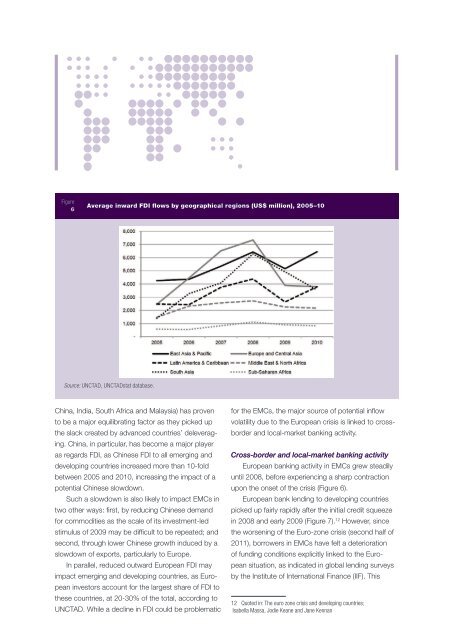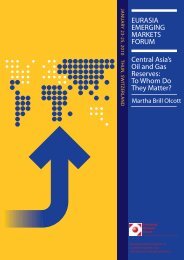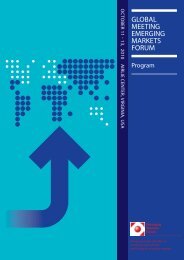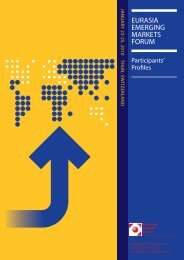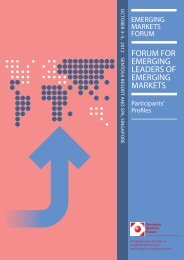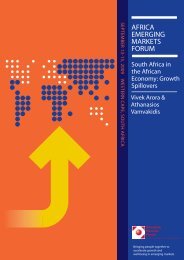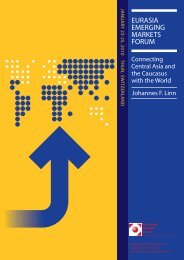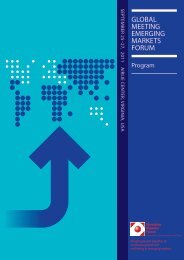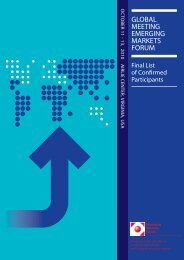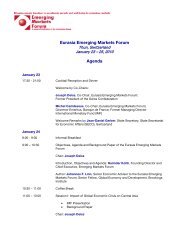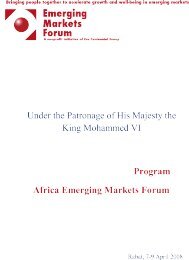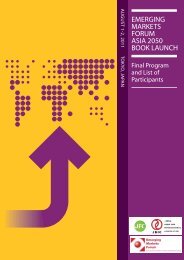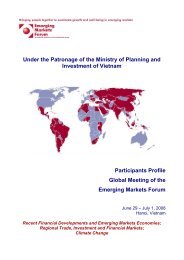The Centennial Resilience Index: Expanding Its Coverage and ...
The Centennial Resilience Index: Expanding Its Coverage and ...
The Centennial Resilience Index: Expanding Its Coverage and ...
Create successful ePaper yourself
Turn your PDF publications into a flip-book with our unique Google optimized e-Paper software.
Figure6Average inward FDI flows by geographical regions (US$ million), 2005–10Source: UNCTAD, UNCTADstat database.China, India, South Africa <strong>and</strong> Malaysia) has provento be a major equilibrating factor as they picked upthe slack created by advanced countries’ deleveraging.China, in particular, has become a major playeras regards FDI, as Chinese FDI to all emerging <strong>and</strong>developing countries increased more than 10-foldbetween 2005 <strong>and</strong> 2010, increasing the impact of apotential Chinese slowdown.Such a slowdown is also likely to impact EMCs intwo other ways: first, by reducing Chinese dem<strong>and</strong>for commodities as the scale of its investment-ledstimulus of 2009 may be difficult to be repeated; <strong>and</strong>second, through lower Chinese growth induced by aslowdown of exports, particularly to Europe.In parallel, reduced outward European FDI mayimpact emerging <strong>and</strong> developing countries, as Europeaninvestors account for the largest share of FDI tothese countries, at 20-30% of the total, according toUNCTAD. While a decline in FDI could be problematicfor the EMCs, the major source of potential inflowvolatility due to the European crisis is linked to crossborder<strong>and</strong> local-market banking activity.Cross-border <strong>and</strong> local-market banking activityEuropean banking activity in EMCs grew steadilyuntil 2008, before experiencing a sharp contractionupon the onset of the crisis (Figure 6).European bank lending to developing countriespicked up fairly rapidly after the initial credit squeezein 2008 <strong>and</strong> early 2009 (Figure 7). 12 However, sincethe worsening of the Euro-zone crisis (second half of2011), borrowers in EMCs have felt a deteriorationof funding conditions explicitly linked to the Europeansituation, as indicated in global lending surveysby the Institute of International Finance (IIF). This12 Quoted in: <strong>The</strong> euro zone crisis <strong>and</strong> developing countries;Isabella Massa, Jodie Keane <strong>and</strong> Jane Kennan


